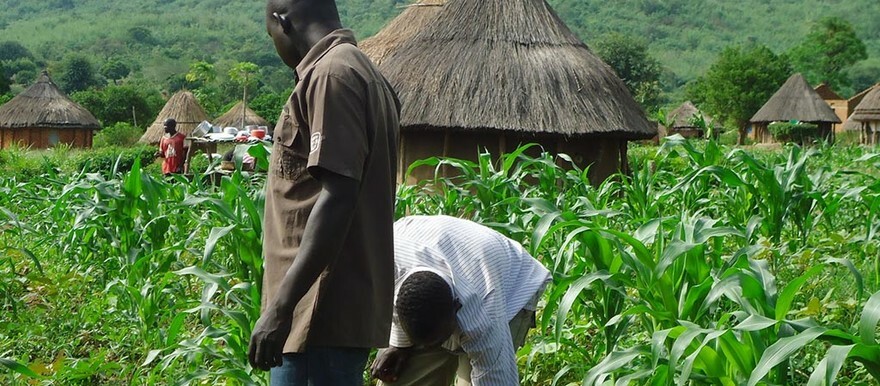Farmers in Terekeka County of Central Equatoria State said they had recorded high crop yields in this year’s crop harvest compared to previous years.
Farming in Terekeka depends entirely on rainfall, which normally begins in April and ends in November.
Speaking to Radio Tamazuj on Friday, several farmers and officials attributed the high crop production to favourable climatic conditions and technical support offered by development partners in the county.
Emmanuel Buyu, a farmer in the county, said he is happy with the high crop yields. He said his farm produce will help improve his income and living conditions.
He called on the government and development partners to promote agriculture through the provision of tractors, loans and storage facilities.
“I have 180 sacks of groundnuts from my 20 feddan farm, six big bags of beans, I also have 10 big bags of sorghum, and I am very happy with the support I received from one of the NGOs,” he said.
Rebecca Amok, a female farmer, said: “We are happy because we are having a good harvest this year because of the training we got here and what we want from the government is to support us more.”
Francis Obodra, a program manager for Seed Grower, a local company supporting seeds production and packaging, said his company is happy with the level of food production in the area this year.
Obodra said his company had empowered local farmers in the country through technical training programs and the purchase of quality seeds.
“The production has really changed because, in the previous years, the production was low, like five bags per feddan, but now the production has increased,” he said.
Angelo Ladu, the Terekeka County Agriculture Director, applauded farmers and NGOs operating in the county for supporting farmers to realize improved and increased food production in the county.
“The outcome of sorghum and groundnuts is good and very promising this year in all the 10 payams of the county, and my message to the farmers is that agriculture is the best way for investment and fight against food insecurity,” he said.




